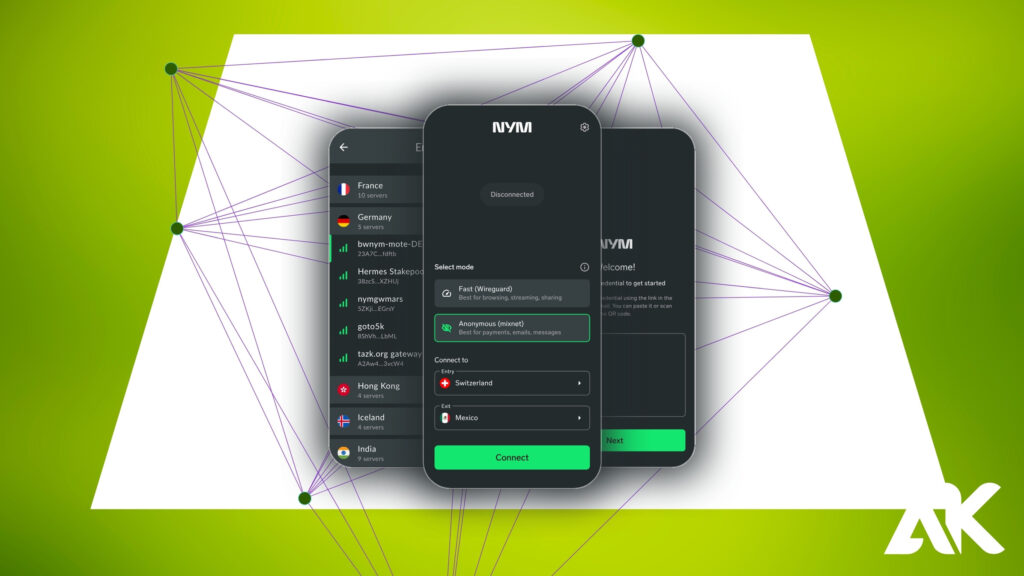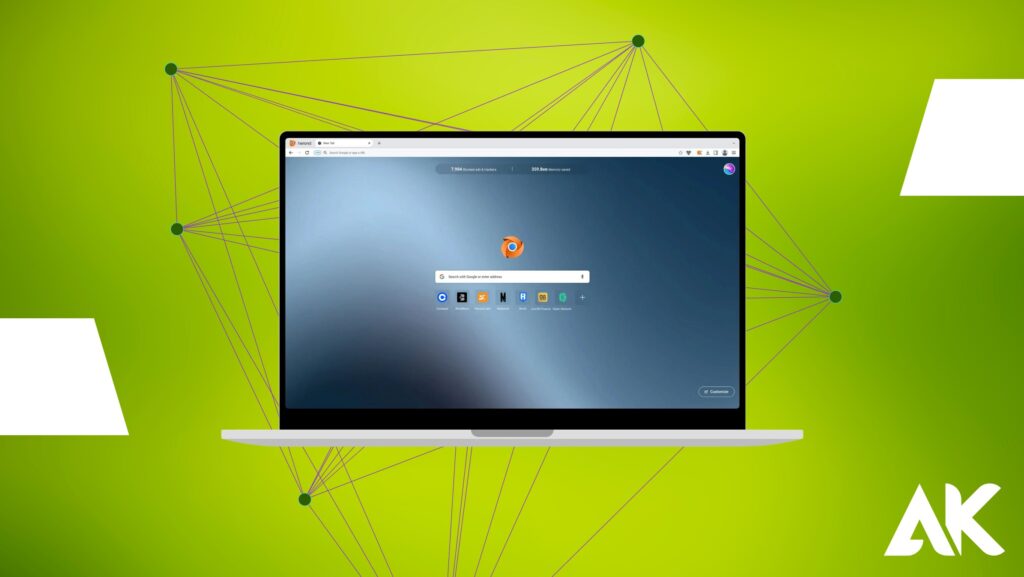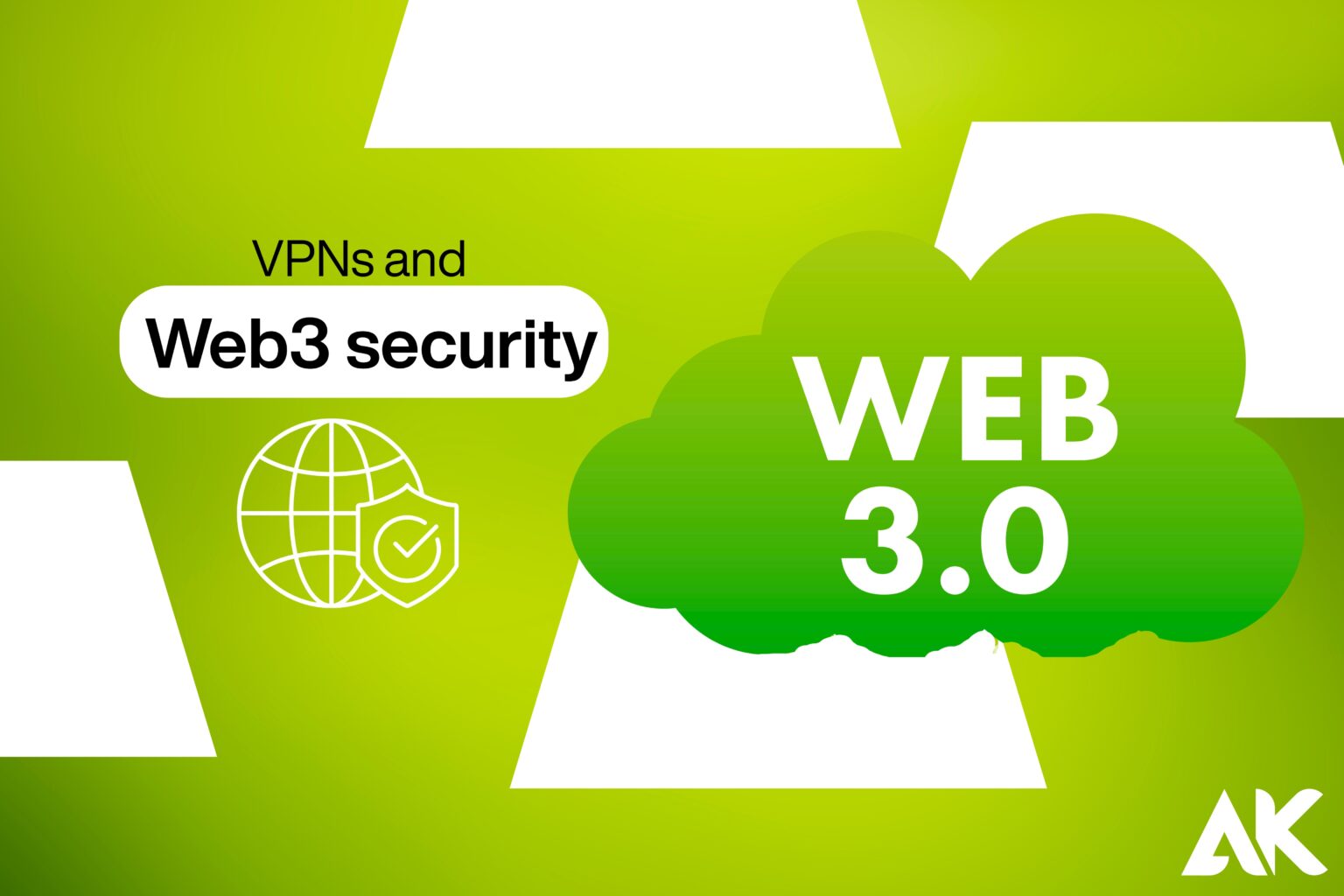Are you curious about how Web3 security and VPNs may complement one another to safeguard your online environment? The solution is straightforward: they build a strong barrier to protect your privacy, identity, and data. It’s more crucial than ever to keep safe when using decentralized platforms in today’s rapidly changing digital world.
VPNs and Web3 security combine the security of decentralized technologies with the privacy of classical encryption. This article will explain the 7 potent ways that Web3 security and VPNs work in tandem to increase your online safety. Knowing this synergy may help you avoid online hazards, whether you’re surfing Web3 sites, delving into cryptocurrency, or investigating DeFi applications.
Let’s examine how, in the digital era, this pair improves trust, privacy, and freedom.
What Are VPNs and Web3 Security?

Before diving into the synergy between the two, it’s important to understand what each brings to the table.
VPNs (Virtual Private Networks)
VPNs protect your online activity by:
- Encrypting your internet traffic
- Hiding your IP address
- Preventing ISP tracking
- Bypassing geo-restrictions and censorship
Web3 Security
Web3 security focuses on protecting decentralized technologies such as:
- Smart contracts
- Decentralized applications (dApps)
- Crypto wallets and transactions
- Blockchain-based identity systems
These tools work differently from traditional web security, emphasizing decentralization, cryptographic verification, and user control.
How VPNs and Web3 Security Work Together

Here are 7 powerful ways VPNs and Web3 security combine to create a safer digital experience:
1. Enhancing Anonymity and Privacy
Web3 technologies allow users to control their identities using blockchain wallets and decentralized IDs. However, without a VPN, your real IP address and location can still be exposed.
How VPNs Add an Extra Layer:
- Hide your IP to avoid geo-targeting and fingerprinting
- Encrypt your traffic to block surveillance by ISPs or governments
- Prevent location leaks when accessing dApps or crypto platforms
Use Case: A user interacting with DeFi platforms from a restricted country can stay anonymous using a VPN without revealing their actual location.
2. Securing Crypto Transactions
Web3 relies heavily on cryptocurrencies and token exchanges. These transactions, although secure on the blockchain, can still be compromised at the network level.
VPNs Help by:
- Encrypting internet connections to protect against man-in-the-middle attacks
- Preventing DNS leaks when accessing crypto exchanges
- Securing public Wi-Fi connections used to manage wallets
Important Tip: Always use a VPN when accessing crypto wallets or exchanges, especially over public networks.
3. Bypassing Geo-Restrictions and Censorship
Some Web3 applications or crypto services are geo-blocked due to local regulations. This is especially common in countries with tight internet controls.
VPNs Enable Access by:
- Letting you choose a server in a different country
- Masking your IP to avoid content blocking
- Providing access to decentralized applications restricted in certain regions
Example: Users in countries that ban DeFi platforms can still use those services through a VPN with a foreign IP address.
4. Mitigating Metadata and Network Tracking
Even though Web3 doesn’t store user data on centralized servers, it doesn’t protect metadata or network traffic patterns.
VPNs Reduce Tracking Risk by:
- Routing all data through encrypted tunnels
- Preventing trackers from logging your browsing history or app usage
- Obscuring traffic between your device and Web3 nodes
Why It Matters: Blockchain activity might be pseudonymous, but IP-level tracking can still link behavior to identities.
5. Protecting Against Phishing and Malicious dApps
Web3 platforms can still fall victim to phishing attacks, fake dApps, and malicious smart contracts. A VPN won’t stop all of them—but it adds a safety net.
VPNs Enhance Security by:
- Blocking access to known malicious domains (some VPNs offer built-in malware protection)
- Hiding device and browser details to reduce attack surfaces
- Adding protection while exploring lesser-known dApps
Pro Tip: Pair your VPN with browser extensions and security tools for maximum protection when using dApps.
6. Supporting Decentralized Identity Systems
Web3 promotes self-sovereign identity through blockchain wallets and decentralized identifiers (DIDs). However, accessing these systems still requires an internet connection vulnerable to leaks.
VPNs Improve Privacy by:
- Securing access to decentralized identity services
- Preventing unauthorized network snooping during identity verification
- Hiding user location when authenticating
Ideal For: Users who manage multiple identities across dApps and want to maintain anonymity across all of them.
7. Preventing Surveillance in Repressive Regions
In countries where surveillance is widespread and Web3 platforms are closely monitored or blocked, VPNs play a critical role in ensuring freedom and security.
VPNs Empower Users to:
- Circumvent firewalls and censorship
- Keep blockchain activity private
- Protect against surveillance or data harvesting
Note: It’s important to choose a VPN provider with a strong no-logs policy and obfuscation technology (like StealthVPN or WireGuard) in such environments.
Comparison Table: VPNs vs Web3 Security (and Their Combined Benefits)

| Feature | VPN Alone | Web3 Security Alone | Combined Benefit |
|---|---|---|---|
| IP Address Protection | Yes | No | Complete anonymity with wallet and location |
| Encryption of Traffic | Yes | Partially (on-chain only) | Full encryption across the user’s activity |
| Bypass Geo-blocks | Yes | No | Access dApps globally |
| Blockchain Transaction Safety | No | Yes | Adds network protection to on-chain security |
| Phishing & Malware Blocking | Some VPNs offer it | No | Added protection from fake sites |
| Decentralized ID Privacy | No | Yes | VPN shields the access point |
| Surveillance Protection | Yes | No | Ensures privacy even under tight censorship |
How to Use VPNs with Web3 Securely
If you’re planning to combine VPNs and Web3 security, here are a few practical steps:
Choose the Right VPN:
- Look for a no-logs policy
- Use providers with strong encryption protocols (e.g., WireGuard, OpenVPN)
- Prefer VPNs with kill switch and DNS leak protection
Safeguard Your Web3 Environment:
- Use hardware wallets or trusted browser wallets like MetaMask
- Avoid installing random dApps without verifying their source
- Stay updated on smart contract vulnerabilities
Combine with Other Tools:
- Use privacy browsers like Brave or Firefox
- Enable ad and tracker blockers
- Monitor your wallet permissions regularly
Final Thoughts
VPNs and Web3 security will become more and more necessary as the internet continues to develop toward a more decentralized future. Web3 platforms increase control and transparency, but they are unable to completely safeguard the connection between your device and the blockchain. VPNs can help users avoid geo-blocks and monitoring by concealing IP addresses, protecting traffic, and more.
You may benefit from the finest features of both technologies—encrypted internet access and decentralized privacy—by combining them. utilizing a VPN enhances your digital trip with essential safety, whether you’re trading cryptocurrency, utilizing DeFi applications, or maintaining your Web3 identity.
FAQs
Question: What are VPNs and Web3 security, and how do they work together?
Answer: VPNs and Web3 security combine encrypted internet access with decentralized protection to ensure online privacy, anonymity, and safer blockchain interactions.
Question: Why is it important to use both VPNs and Web3 security for crypto activities?
Answer: Using VPNs and Web3 security together helps protect your IP, encrypts traffic, prevents tracking, and adds an extra layer of safety when trading or storing crypto assets.
Question: Can VPNs improve Web3 security on decentralized apps (dApps)?
Answer: Yes, VPNs enhance Web3 security on dApps by hiding your real location, encrypting data, and preventing third-party surveillance while using decentralized platforms.

